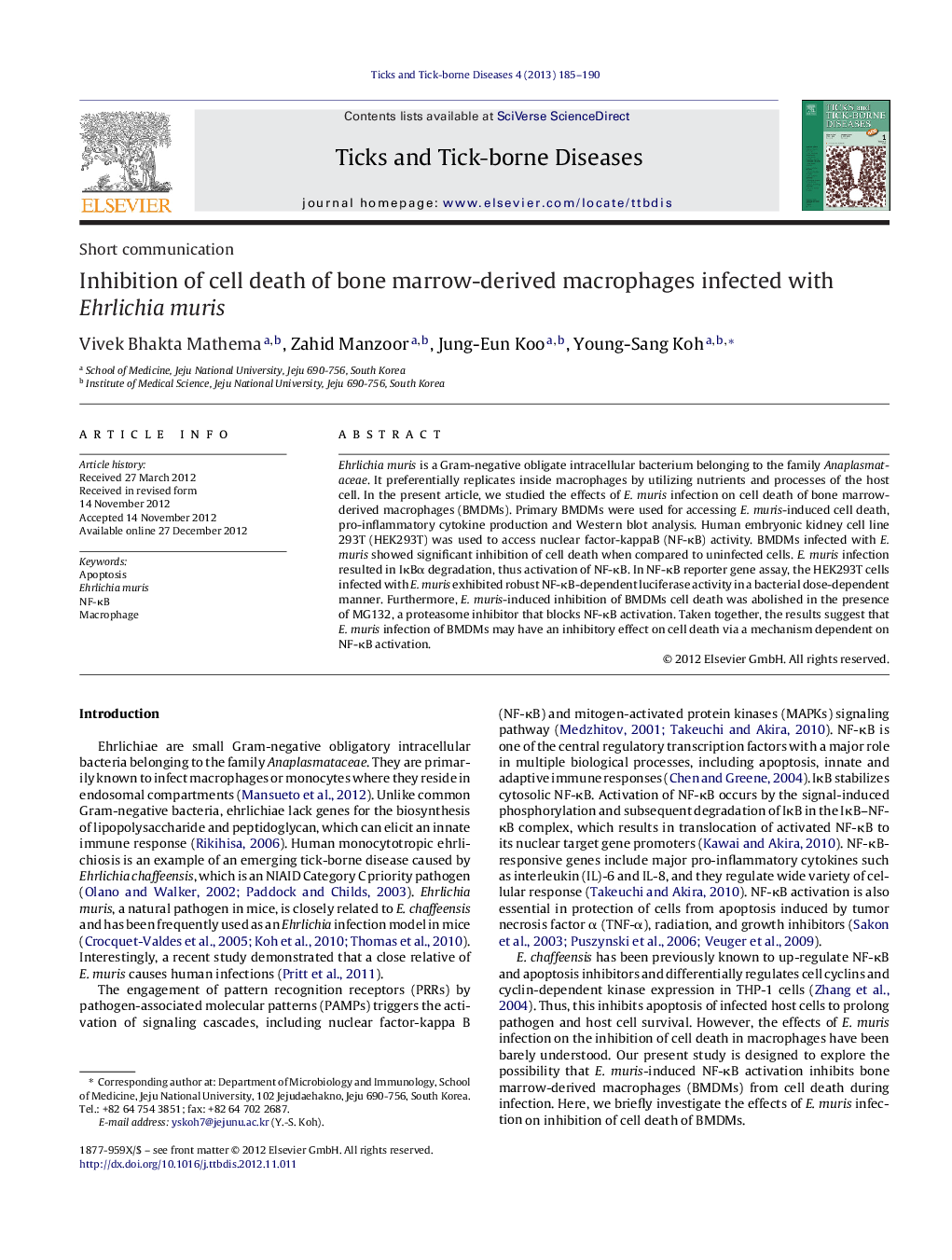| Article ID | Journal | Published Year | Pages | File Type |
|---|---|---|---|---|
| 2474164 | Ticks and Tick-borne Diseases | 2013 | 6 Pages |
Ehrlichia muris is a Gram-negative obligate intracellular bacterium belonging to the family Anaplasmataceae. It preferentially replicates inside macrophages by utilizing nutrients and processes of the host cell. In the present article, we studied the effects of E. muris infection on cell death of bone marrow-derived macrophages (BMDMs). Primary BMDMs were used for accessing E. muris-induced cell death, pro-inflammatory cytokine production and Western blot analysis. Human embryonic kidney cell line 293T (HEK293T) was used to access nuclear factor-kappaB (NF-κB) activity. BMDMs infected with E. muris showed significant inhibition of cell death when compared to uninfected cells. E. muris infection resulted in IκBα degradation, thus activation of NF-κB. In NF-κB reporter gene assay, the HEK293T cells infected with E. muris exhibited robust NF-κB-dependent luciferase activity in a bacterial dose-dependent manner. Furthermore, E. muris-induced inhibition of BMDMs cell death was abolished in the presence of MG132, a proteasome inhibitor that blocks NF-κB activation. Taken together, the results suggest that E. muris infection of BMDMs may have an inhibitory effect on cell death via a mechanism dependent on NF-κB activation.
